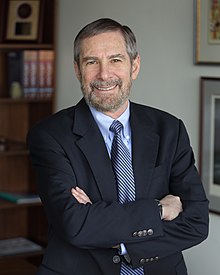
Michael Ellis DeBakey was an American general and cardiovascular surgeon, scientist and medical educator who became Chairman of the Department of Surgery, President, and Chancellor of Baylor College of Medicine at the Texas Medical Center in Houston, Texas. His career spanned nearly eight decades.
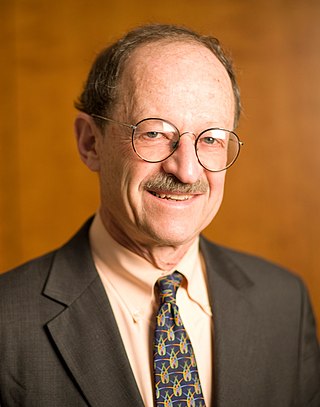
Harold Eliot Varmus is an American Nobel Prize-winning scientist. He is currently the Lewis Thomas University Professor of Medicine at Weill Cornell Medicine and a senior associate at the New York Genome Center.
Lasker–DeBakey Clinical Medical Research Award is one of four annual awards presented by the Lasker Foundation. The Lasker–DeBakey award is given to honor outstanding work for the understanding, diagnosis, prevention, treatment, and cure of disease. This award was renamed in 2008 in honor of Michael E. DeBakey. It was previously known as the Albert Lasker Award for Clinical Medical Research.
The National Cancer Institute (NCI) coordinates the United States National Cancer Program and is part of the National Institutes of Health (NIH), which is one of eleven agencies that are part of the U.S. Department of Health and Human Services. The NCI conducts and supports research, training, health information dissemination, and other activities related to the causes, prevention, diagnosis, and treatment of cancer; the supportive care of cancer patients and their families; and cancer survivorship.

Cervical intraepithelial neoplasia (CIN), also known as cervical dysplasia, is the abnormal growth of cells on the surface of the cervix that could potentially lead to cervical cancer. More specifically, CIN refers to the potentially precancerous transformation of cells of the cervix.

Human papillomavirus (HPV) vaccines are vaccines that prevent infection by certain types of human papillomavirus (HPV). Available HPV vaccines protect against either two, four, or nine types of HPV. All HPV vaccines protect against at least HPV types 16 and 18, which cause the greatest risk of cervical cancer. It is estimated that HPV vaccines may prevent 70% of cervical cancer, 80% of anal cancer, 60% of vaginal cancer, 40% of vulvar cancer, and show more than 90% efficacy in preventing HPV-positive oropharyngeal cancers. They additionally prevent some genital warts, with the quadrivalent and nonavalent vaccines that protect against HPV types HPV-6 and HPV-11 providing greater protection.
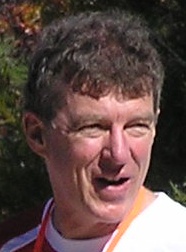
Ian Hector Frazer is a Scottish-born Australian immunologist, the founding CEO and Director of Research of the Translational Research Institute (Australia). Frazer and Jian Zhou developed and patented the basic technology behind the HPV vaccine against cervical cancer at the University of Queensland. Researchers at the National Cancer Institute, Georgetown University, and University of Rochester also contributed to the further development of the cervical cancer vaccine in parallel.

Emil "Tom" Frei III was an American physician and oncologist. He was the former director and former physician-in-chief of the Dana–Farber Cancer Institute in Boston, Massachusetts. He was also the Richard and Susan Smith Distinguished Professor of Medicine at Harvard Medical School.
Karen Heather Vousden, CBE, FRS, FRSE, FMedSci is a British medical researcher. She is known for her work on the tumour suppressor protein, p53, and in particular her discovery of the important regulatory role of Mdm2, an attractive target for anti-cancer agents. From 2003 to 2016, she was the director of the Cancer Research UK Beatson Institute in Glasgow, UK, moving back to London in 2016 to take up the role of Chief Scientist at CRUK and Group Leader at the Francis Crick Institute.

Harald zur Hausen NAS EASA APS was a German virologist. He carried out research on cervical cancer and discovered the role of papilloma viruses in cervical cancer, for which he received the Nobel Prize in Physiology or Medicine in 2008. He was chairman of the German Cancer Research Center in Heidelberg.
HspE7 is an investigational therapeutic vaccine candidate being developed by Nventa Biopharmaceuticals for the treatment of precancerous and cancerous lesions caused by the human papillomavirus (HPV). HspE7 uses recombinant DNA technology to covalently fuse a heat shock protein (Hsp) to a target antigen, thereby stimulating cellular immune system responses to specific diseases. HspE7 is a patented construct consisting of the HPV Type 16 E7 protein and heat shock protein 65 (Hsp65) and is currently the only candidate using Hsp technology to target the over 20 million Americans already infected with HPV.
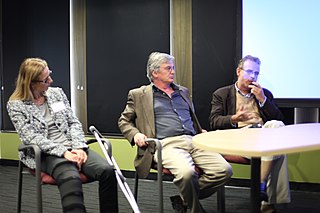
Napoleone Ferrara, is an Italian-American molecular biologist who joined University of California, San Diego Moores Cancer Center in 2013 after a career in Northern California at the biotechnology giant Genentech, where he pioneered the development of new treatments for angiogenic diseases such as cancer, age-related macular degeneration (AMD), and diabetic retinopathy. At Genentech, he discovered VEGF—and made the first anti-VEGF antibody—which suppresses growth of a variety of tumors. These findings helped lead to development of the first clinically available angiogenesis inhibitor, bevacizumab (Avastin), which prevents the growth of new blood vessels into a solid tumor and which has become part of standard treatment for a variety of cancers. Ferrara's work led also to the development of ranibizumab (Lucentis), a drug that is highly effective at preventing vision loss in intraocular neovascular disorders.

Charles L. Sawyers is a Howard Hughes Medical Institute (HHMI) investigator who holds the Marie-Josée and Henry R. Kravis Chair of the Human Oncology and Pathogenesis Program (HOPP) at Memorial Sloan Kettering Cancer Center (MSK). HOPP is a program created in 2006 that comprises researchers from many disciplines to bridge clinical and laboratory discoveries.

Brian J. Druker is a physician-scientist at Oregon Health & Science University (OHSU), in Portland, Oregon. He is the director of OHSU's Knight Cancer Institute, JELD-WEN Chair of Leukemia Research, Associate Dean for Oncology in the OHSU School of Medicine, and professor of medicine.
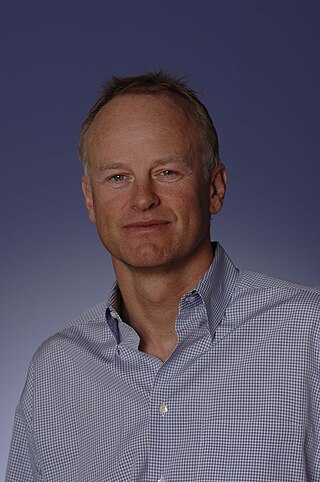
Nicholas B. Lydon FRS is a British scientist and entrepreneur. In 2009, he was awarded the Lasker Clinical Award and in 2012 the Japan Prize for the development of Gleevec, also known as Imatinib, a selective BCR-ABL inhibitor for the treatment of chronic myeloid leukaemia (CML), which converted a fatal cancer into a manageable chronic condition.

The UNC Lineberger Comprehensive Cancer Center is a cancer research and treatment center at the University of North Carolina at Chapel Hill. One of 52 National Cancer Institute-designated comprehensive cancer centers in the United States, its clinical base is the N.C. Cancer Hospital, part of the UNC Health Care system. UNC Lineberger is the only public NCI-designated comprehensive cancer center in the state of North Carolina. The current director is H. Shelton Earp III who succeeded current NCI director Norman Sharpless.
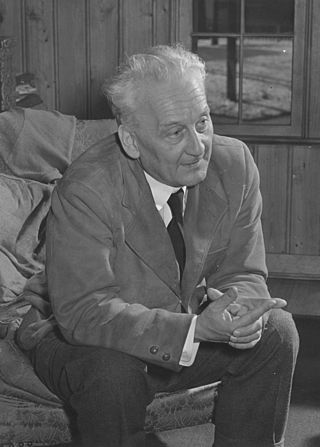
The Szent-Györgyi Prize for Progress in Cancer Research, established by National Foundation for Cancer Research (NFCR) and named in honor of Albert Szent-Györgyi, Nobel laureate and co-founder of NFCR, has been awarded annually since 2006 to outstanding researchers whose scientific achievements have expanded the understanding of cancer and whose vision has moved cancer research in new directions. The Szent-Györgyi Prize honors researchers whose discoveries have made possible new approaches to preventing, diagnosing and/or treating cancer. The Prize recipient is honored at a formal dinner and award ceremony and receives a $25,000 cash prize. In addition, the recipient leads the next "Szent-Györgyi Prize Committee" as honorary chairman.
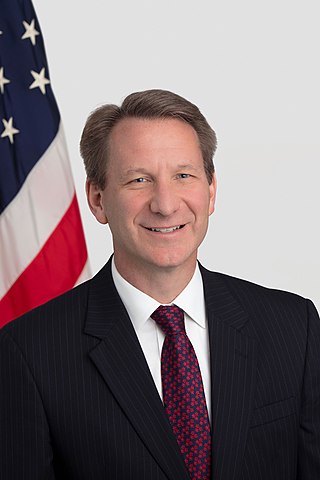
Norman Edward "Ned" Sharpless is the previous Director of the National Cancer Institute (NCI). Before that, Sharpless was Professor of Medicine and Genetics Chair, Director of University of North Carolina UNC Lineberger Comprehensive Cancer Center, Molecular Therapeutics, Wellcome Distinguished Professorship in Cancer Research.
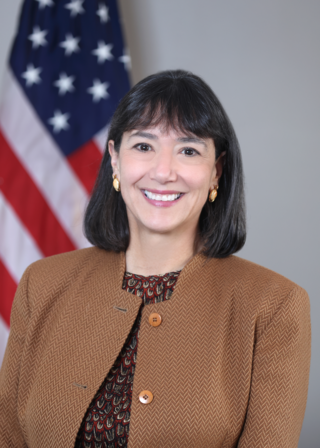
Monica Bertagnolli is an American surgical oncologist and the 17th director of the National Institutes of Health. She previously served as the 16th director of the National Cancer Institute (NCI). Prior to her governmental positions, she worked at Brigham and Women's Hospital and Dana–Farber Cancer Institute and was the Richard E. Wilson Professor of Surgery at Harvard Medical School.
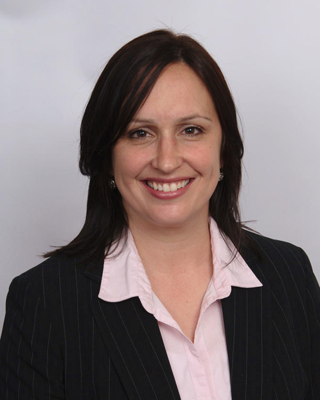
Julia C. Gage is an American cancer epidemiologist who researches cervical screening and the human papillomavirus infection. She is a staff scientist in the clinical genetics branch at the National Cancer Institute.
